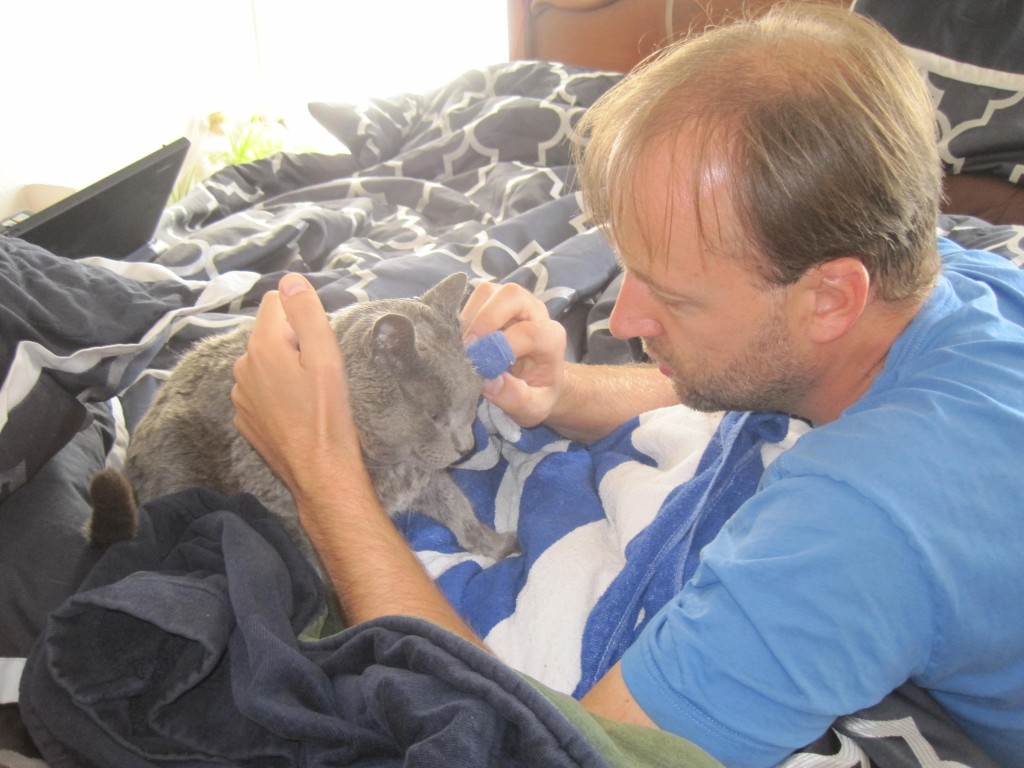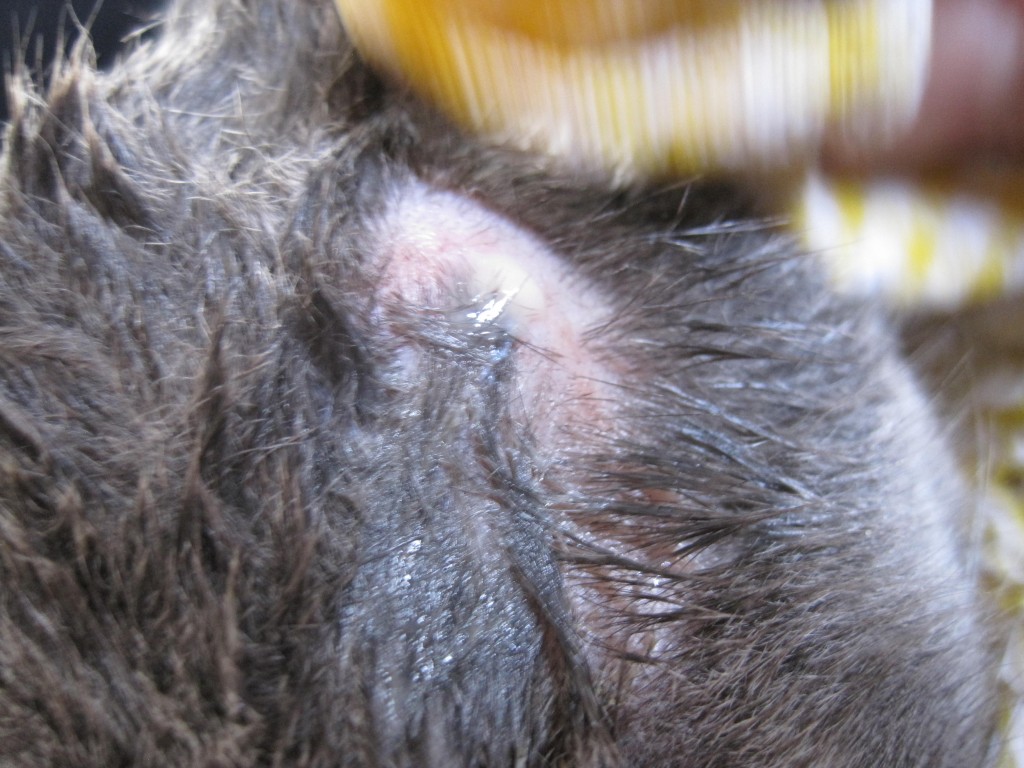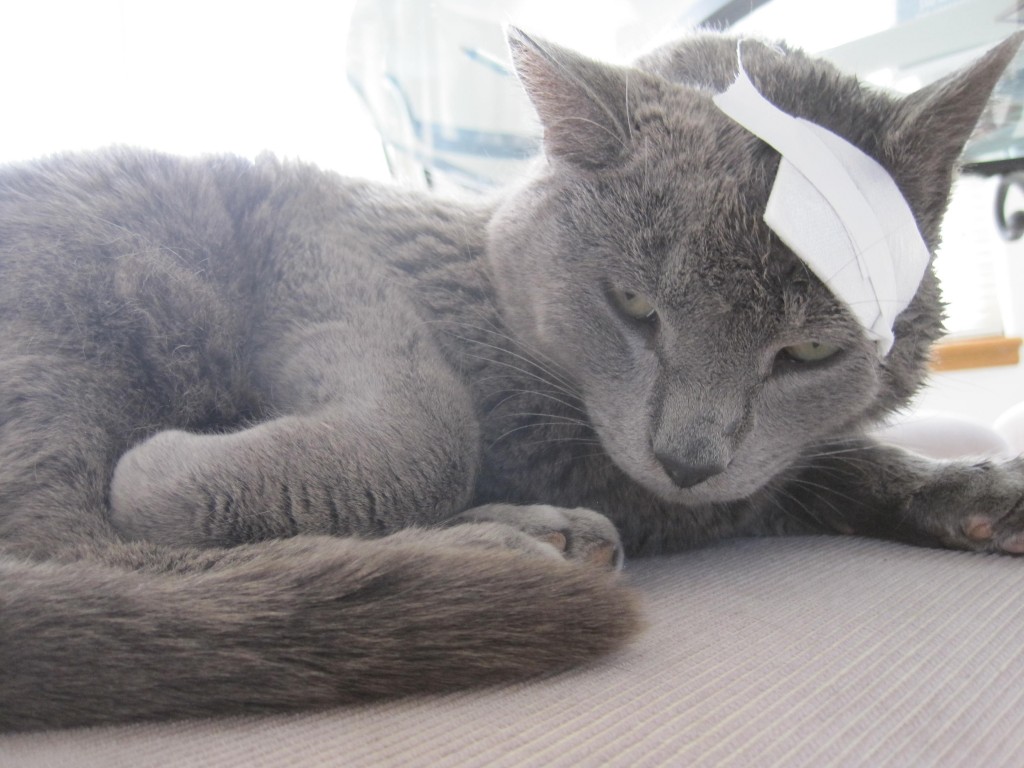Well, it turned out Kitty’s lump was indeed an abscess as some of you mentioned. We really appreciate your feedback because we have never seen an abscess before!
We talked with a few people, including a friend who is a veterinarian and another friend who used to be a vet tech and they said that as long as we weren’t squeamish, we could take care of Kitty’s abscess from home and wouldn’t need to take him to a vet.
This post will attempt to describe what it takes to treat a cat with an abscess using just what you have at home or can buy in a store. It is very detailed, so if you don’t like to see open wounds, avert your eyes.
These are the tools we used:
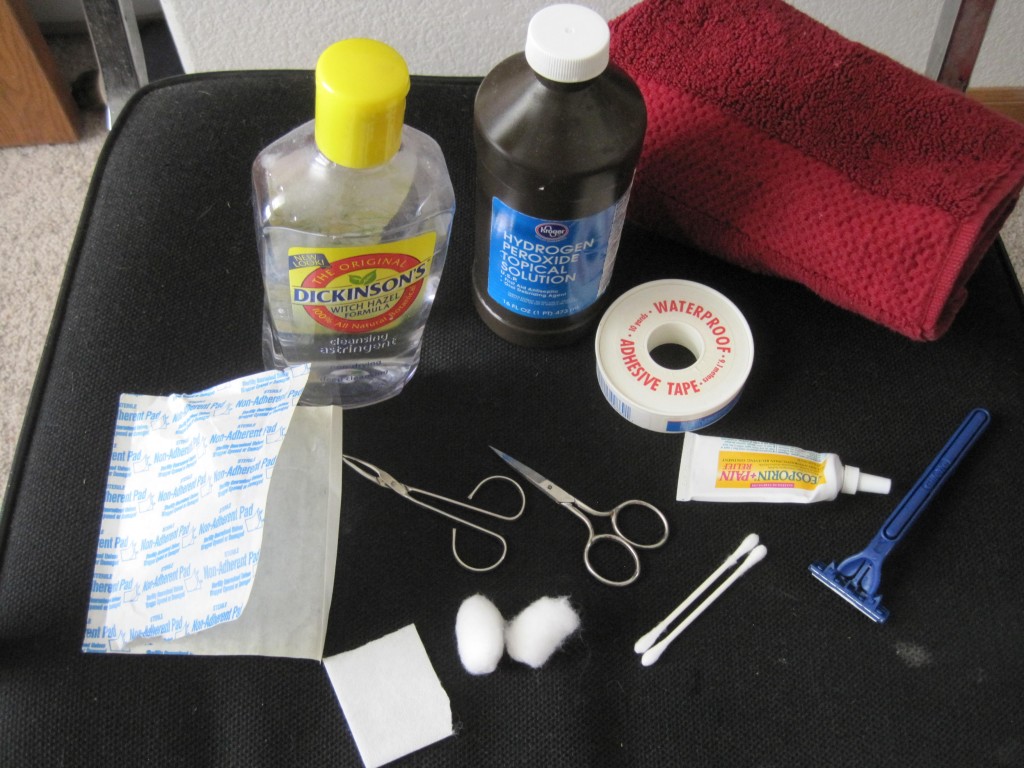
Supplies needed/used to treat Kitty’s abscess
Non-stick gauze pad cut into smaller pieces
Adhesive Tape
Hydrogen Peroxide (in the vet’s office they prefer to use betadine, but we didn’t have any)
Witch Hazel
Small scissors (sterilize by boiling and rubbing with alcohol)
Tweezers (sterilized)
Q-Tips
Cotton balls
Razor (sterilized)
Neosporin (antibacterial gel)
Wash rag
Large Towel (not pictured)
(Note: Make sure to wash hands before and after too!)
First we washed the area with the hot wash rag. We gently pressed the warm rag into his head to loosen up the abscess. Soon we noticed pus leaking out, but couldn’t see where it was coming from. So we used the razor to shave the area around the hole. We also used the tweezers and scissors a little to get some of the weird material out of the way.
You can tell a lot about the progression of the abscess from the pus. In Kitty’s case it was white which means there were a lot of white blood cells in there trying to clear up the infection. If you see green, yellow or really stinky pus, it might be too far progressed to treat at home and the cat may need to be treated (at the vet) for blood sepsis. But for Kitty, this was actually a good sign: we noticed his lump early enough.
Soon, enough pus popped out that we could begin to see the puncture wound:
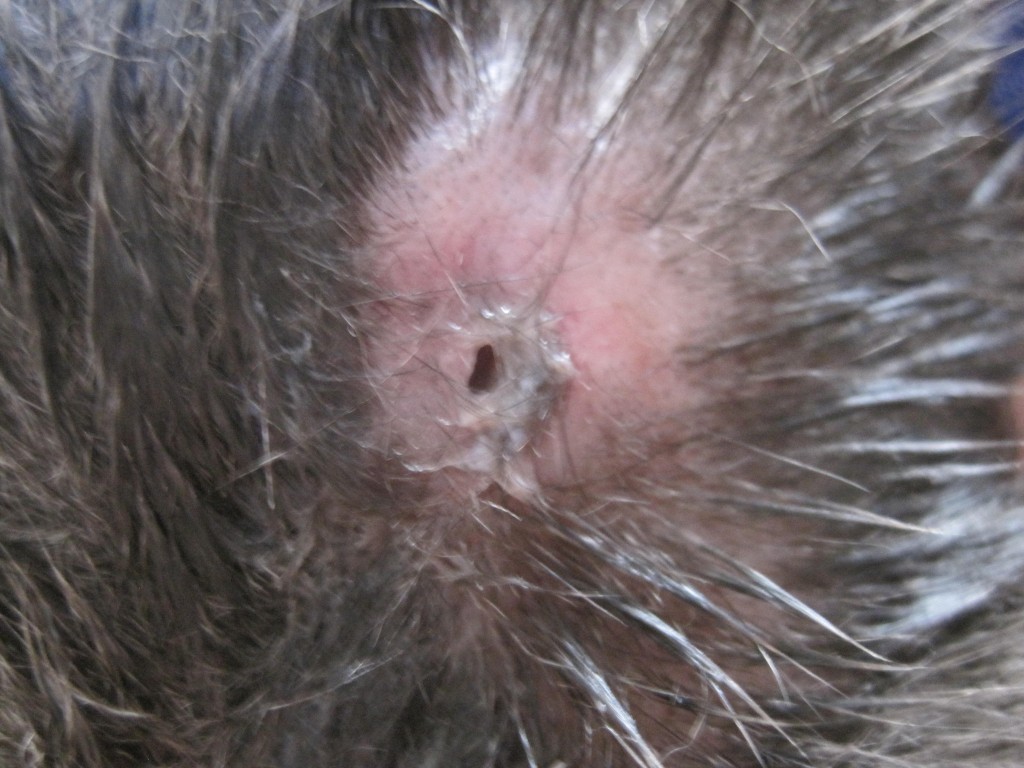
Puncture wound at first
As we got a little deeper into cleaning out the pus and the area around, it was apparent that the wound was much bigger than we initially thought:
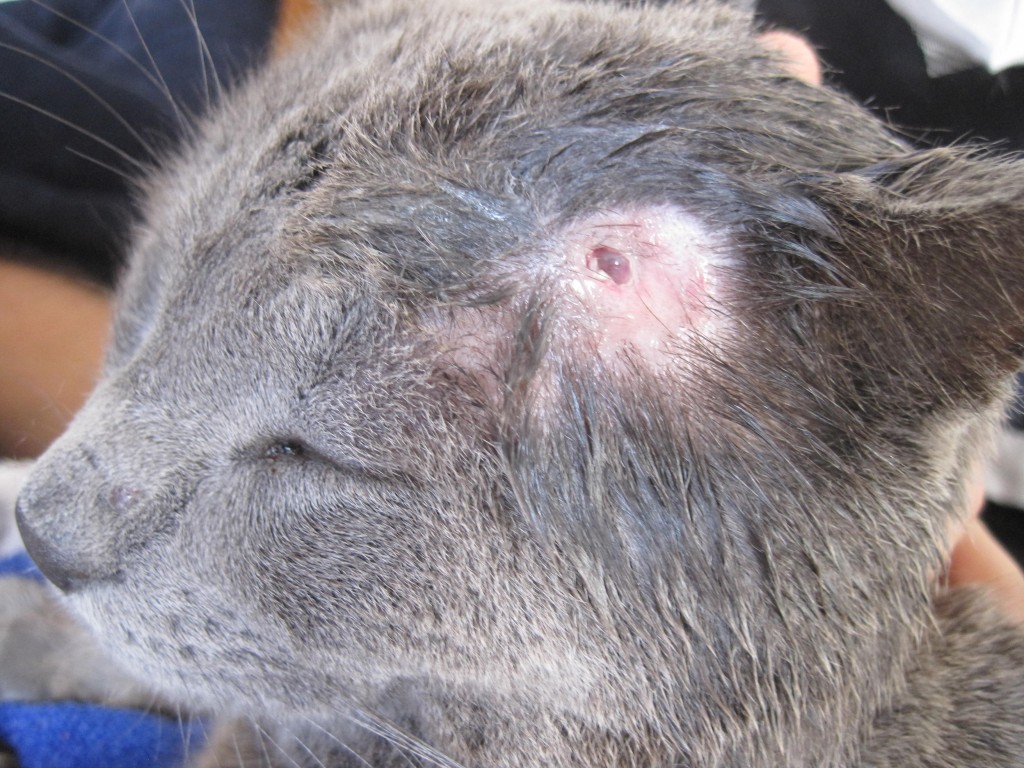
Poor Kitty with his gaping hole
Once we got most of the pus and water out and the lump above his eye was gone, we were able to really clean it. We again put a hot wash cloth on him and let it ooze for a little bit as we cleaned it. Kitty didn’t seem to mind. He seemed happy someone was helping him actually.
After a while it pretty much stopped and we poured the peroxide into the wound. It fizzed a little and then went down. We put more peroxide on a cotton ball and pressed it lightly into the hole where it really fizzed. Kitty squirmed a little at this, but was ok. Then we applied the Witch Hazel tincture which is an astringent and helps to reduce swelling (Witch Hazel is usually the main active ingredient in things like Preparation H). The Witch Hazel formula is mostly rubbing alcohol, so it also has antiseptic qualities.
Finally, we used a Q-tip to apply neosporin to the hole and we put neosporin on the gauze pad too. Then we put the gauze pad on him and wrapped his head with the medical adhesive tape. He looked like a brain surgery patient!
We kept the bandage on the first full day. The second day we let him have it off so he could clean (lick) his face a little and the hole could air out to begin to form a scab if it was ready. Later the second day it looked like it was starting to scab, but we thought we would clean it again since it could have had any number of germy things introduced during the day. This time we didn’t try and get deep into the hole, but just washed the surface with a cottonball and peroxide.
The final step in treatment of an abscess usually calls for antibiotics to kill any system-wide bad bacteria. We don’t have access to any antibiotics, so we asked our vet friend if she would write us an Rx. She said as long as he is healing, they are not necessary; so that was surprising!
We are so happy that Kitty is getting better and we learned a lot in the process. If you have cats, we hope this never happens to them, but if it does, you’ll now know what to do.
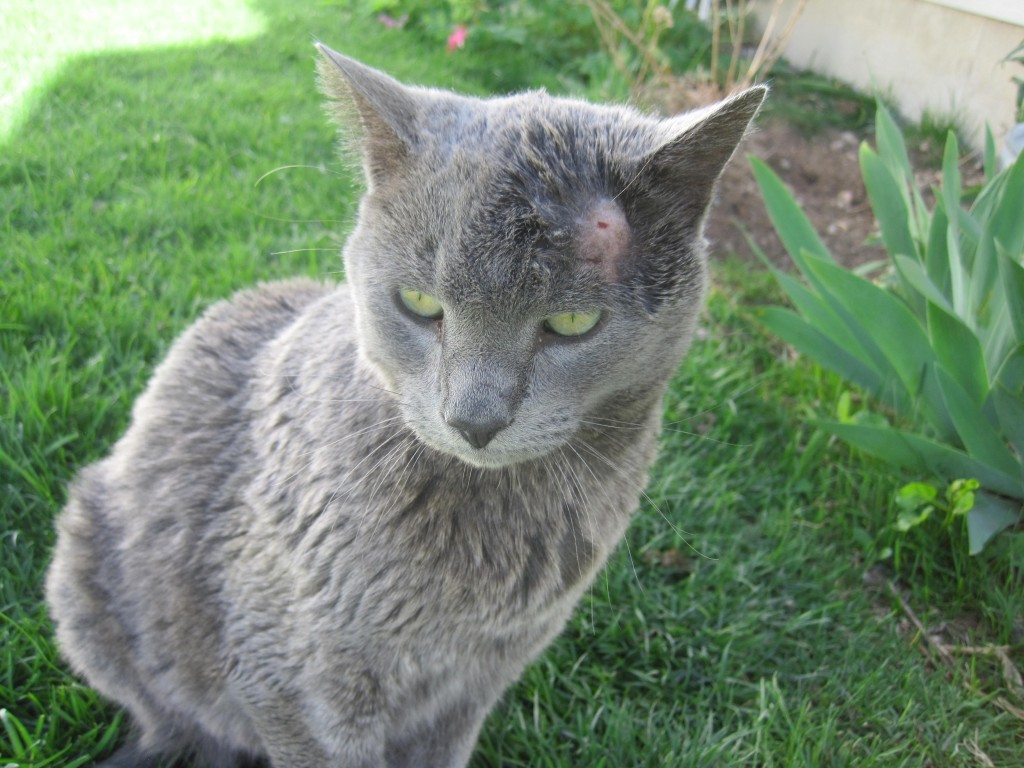
By the third day, a scab had started to form and he’s feeling much better!
Here’s a video of it too!

